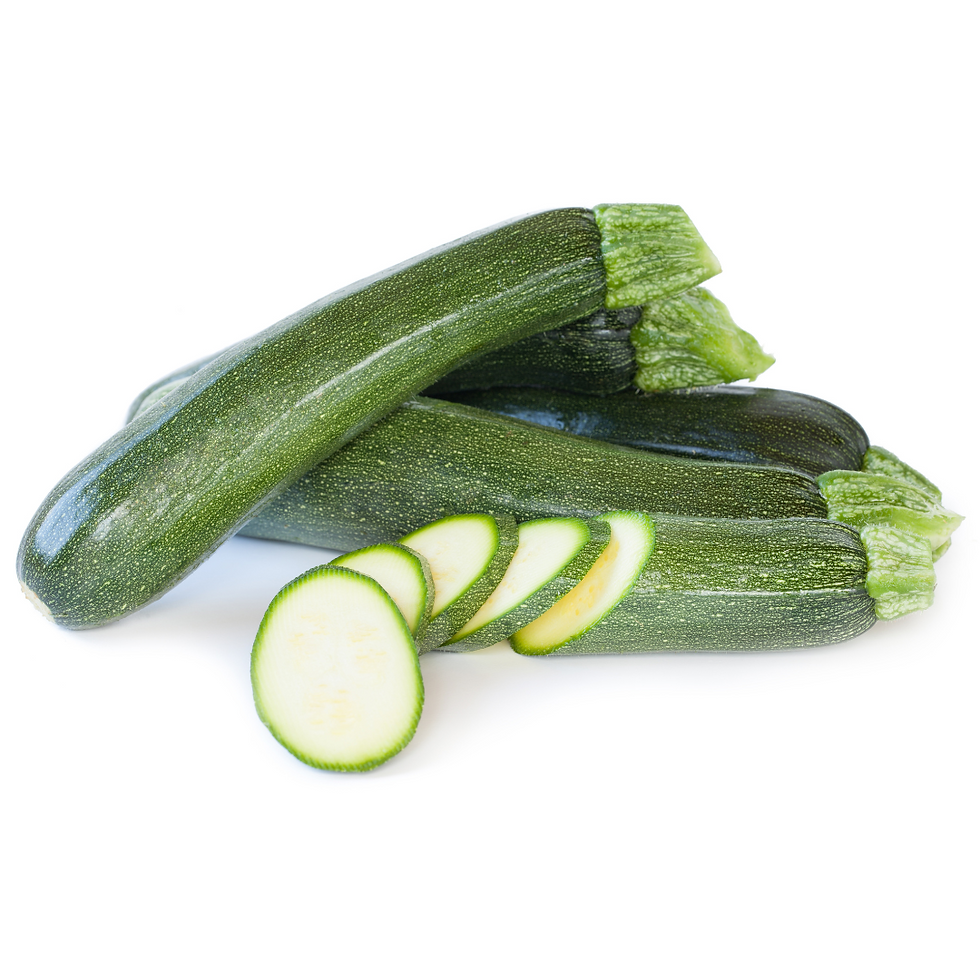Zucchini
Tender, buttery zucchini can go from sweet in zucchini bread to savory in a variety of dishes, from breakfast sautées to ratatouille to simply being grilled & drizzled with an herbed aioli.

Flavor profile: With a mild flavor that can go both sweet or savory depending on how they are cooked, zucchini is known for its tender, buttery texture.
Uses: There are a million different ways to cook with zucchini, which is good because there always comes a point in the season where there is suddenly far too much of it coming out of our gardens! Grill and drizzle with aoili or toss into a grilled veggie salad, sauté with garlic and serve alongside rice or eggs, grate and bake into a sweet zucchini bread, the possibilities are endless!
Pairs with: Savory: garlic, butter, fresh herbs, creamy dips and dressings, eggs, rice; Sweet: cinnamon, allspice, vanilla, walnuts
Storage: To make sure your zucchini both retains its moisture in the fridge and keeps from getting slimy, it's best to store it in a loosely closed plastic bag with a paper towel to soak up any extra moisture.
Other names: Known as a courgette in Europe, zucchini is one of many varieties of summer squash that are harvested when they are small and tender before seeds develop. In Italian, zucca means "squash," and zucchini just means, "little squash." The word squash itself comes from the Narragansett Native American word askutasquash, which translates to "eaten raw or uncooked."
Nutrients: Zucchini and other summer squash are high in vitamin C, potassium, and magnesium, in addition a handful of other minerals and micronutrients. Their skins also contain carotenoids, which can help promote healtheir skin, stronger bones, and a myriad of other health benefits.
History: The Three Sisters that have been grown together throughout the Americas for thousands of years include corn, beans, and squash. while the corn grows tall providing a trellis for the beans, the beans provide fertility, and the squash creates a ground cover that shades out the weeds. Squash seeds have been found in Mexico from as early as 9000 BC. Indigenous people throughout the Americas harvested squash at all stages of ripeness, from tender young summer squash to storage-ready winter squash, although the particular variety of zucchini that we know was developed later on in Europe.
Why it's a great crop: Zucchini is one of the first signs of summer that we often wait for after a long winter of potatoes and carrots, and once the plants get going they never really stop! Just like their cucumber cousins, zucchini are a maintenance crop that must be harvested almost daily to capture the fruits at the perfect tender size before they get too big. Plants tend to produce prolifically and don't require nearly as much labor to produce or harvest as tomatoes.
